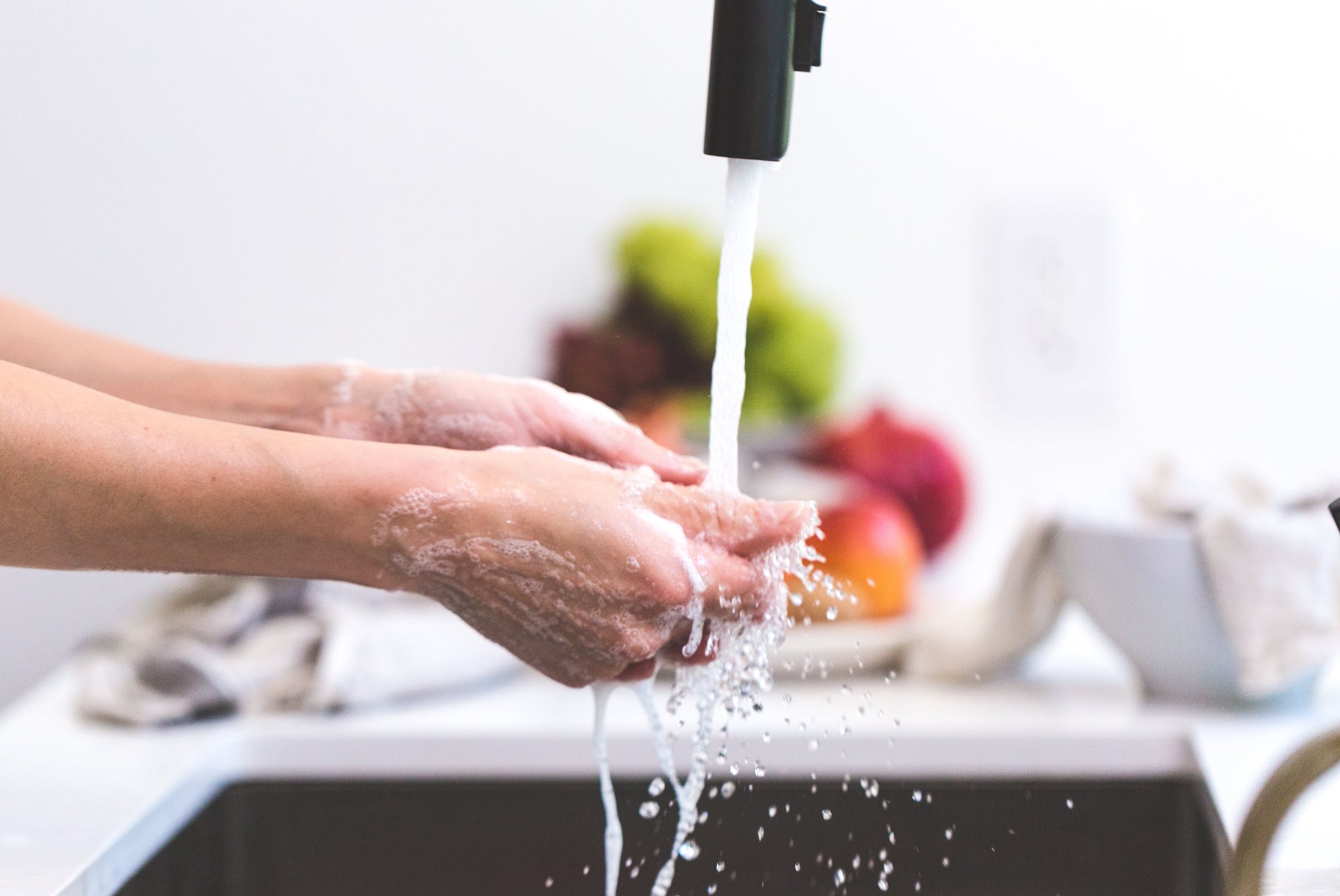As coronavirus continues to spread, health experts around the globe are urging people to frequently wash their hands.
Like the majority of cold and flu bugs, health experts also shared that the virus is spread through droplets transmitted into the air from coughing and sneezing, which people nearby can take in through their nose, mouth or eyes. However, if the droplets land on surfaces and are picked up on the hands of others, they can spread further. Because of this, health experts say that regular hand-washing is the most effective means of prevention.
While vigorous hand-washing and using harsh sanitizers are both vital in reducing the spread of the virus, they can have an adverse effect on the skin, leaving hands feeling dry, cracked and sore.
Why is handwashing so harsh on our skin?
The outermost layer of our skin is composed of oils and wax, and it acts as both a shield from the outside and a guard that maintains natural moisture in the skin. This natural barrier is broken down by the suds created by soap while washing hands, which does not discriminate between unwanted oil, germs, debris and natural oils in the skin. Not applying hand cream can lead to dryness, redness, itching, flaking, discomfort and in severe cases, cracks in the skin. Those with preexisting dermatologic conditions like eczema can experience worsening symptoms.
This is why we’ve put together a list of ways on how you can properly care for dry hands due to frequent handwashing.
Use an anti-microbial hand wash
Dermatologists recommend using a moisturizing cleanser to wash your hands instead of traditional soap as it can help to soften and hydrate the skin, especially when you’re suffering from conditions such as eczema or dermatitis. While soothing, the product is an antimicrobial emollient meaning it kills microorganisms and stops their growth.
Invest in fragrance-free hand creams and moisturizing masks
After drying your hands or the application of hand-sanitizing gel, you should apply a generous layer of hand cream to help keep them nourished, soothe any dry areas and minimize skin irritation.
If you’re looking for a more intense hit of hydration, hand masks are a great treatment method for concentrating ingredients on your digits. Hand masks work just like face masks.
Wear gloves
Wearing gloves will provide an added layer of protection and are particularly beneficial when cleaning.
Many household cleaning products contain harsh chemicals that can be damaging to the skin, causing an irritant dermatitis. Also, keep in mind that rubber gloves should only be worn for short periods as they may exacerbate skin conditions. Wearing gloves outside will give a layer of protection against the elements, which can also be drying to the skin, while applying a thick layer of hand cream at night with cotton gloves before bed can help nourish and repair skin.
Dry your hands properly
Once you’ve washed your hands for at least 20 seconds, pat them dry rather than rubbing them, which can irritate the skin. Once your hands are dry, immediately use a hand cream to seal in the moisture. Ideal hand creams should not include irritants, such as retinol or other anti-aging serums, allergens or fragrances.
Among the many kinds of moisturizers, hand creams are better than body lotion because they are more nourishing. Lotions, which are primarily water-based, can further dry out skin because the water evaporates. Creams, which are often oil-based, are more effective after washing hands.
Therefore, it’s best to use hand cream after washing your hands as it’s a safe and clean way to prevent dry skin. You can also opt to carry some in your own personal tubes of moisturizer to avoid spreading germs by sharing with others.
Use skin balm
If you suffer from skin conditions such as eczema or psoriasis and find your dry skin is becoming increasingly more dry, raw, or cracked due to more washing, opt for a skin balm such as Vaseline and applying it directly onto sores or cracked areas. This will both soothe the area as well as protect it from further damage, especially if you find you are outside a lot as the elements will also add to the damage.
Nighttime is a really good time to give your skin a rest. Put on a really thick balm or cream and if you can, put on a pair of cotton gloves. If you can tolerate that for a few hours before bed, or even overnight, that utilizes all that downtime to hydrate the skin to get it back into gear. Once you’ve done all these tips to address the problem, you’re sure to see improvement in no time. Continue practicing correct and frequent handwashing while also taking care of your skin.
Comments
0 comments


Very nice post. I just stumbled upon your blog and wanted to say that I’ve really enjoyed browsing your blog posts. In any case I’ll be subscribing to your feed and I hope you write again soon!
Thank you very much for sharing, I learned a lot from your article. Very cool. Thanks. nimabi